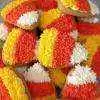-
Welcome to Celiac.com!
You have found your celiac tribe! Join us and ask questions in our forum, share your story, and connect with others.
-
Celiac.com Sponsor (A1):
Celiac.com Sponsor (A1-M):
-
Get Celiac.com Updates:Support Our Content
Opinions From Horse Lovers/owners
-
Get Celiac.com Updates:Support Celiac.com:
-
Celiac.com Sponsor (A17):
Celiac.com Sponsor (A17):
Celiac.com Sponsors (A17-M):
-
Recent Activity
-
- trents replied to Brown42186's topic in Celiac Disease Pre-Diagnosis, Testing & Symptoms15
Help Understanding Test Results
ome value? Is that a typo? I don't see that on any of the test results you post and I've never heard of that one. -
- Scott Adams replied to Brown42186's topic in Celiac Disease Pre-Diagnosis, Testing & Symptoms15
Help Understanding Test Results
Thanks for the update! It’s great that your GI is being thorough with the follow-up testing—hopefully the endoscopy will give you clearer answers. The EPI diagnosis is interesting; I’ve read that celiac can sometimes lead to pancreatic issues like EPI due to long-term malabsorption or autoimmune overlap. Have they mentioned if your EPI might improve with ... -
- Brown42186 replied to Brown42186's topic in Celiac Disease Pre-Diagnosis, Testing & Symptoms15
Help Understanding Test Results
Hi again! I just wanted to update here that the GI redid my bloodwork and the ome value is still high so I'm having an endoscopy tomorrow. I also got diagnosed with EPI which seems to possibly be linked to celiac according to Google. -
- Liquid lunch replied to Bebygirl01's topic in Related Issues & Disorders25
How many people here are aware that there are 9 types of gluten that Celiacs should be aware of?
Reishi and cordyceps are immune modulators, they stop you reacting so much/producing antibodies to lectins. Uptake is better when taken as a tincture, you can buy it pre made as a tincture, usually vodka based, or make your own which is much cheaper. You can find instructions online, basically powdered mushrooms soaked in strong alcohol for a month... -
- Bebygirl01 replied to Bebygirl01's topic in Introduce Yourself / Share Stuff1
Not Just Wheat, Barley and Rye Glutens that make us sick
corn: It is the second most commonly genetically modified food on the planet (soy is #1) Genetic modification of foods continues to kill animals in scientific studies. It is an incomplete protein. It is difficult for humans to digest (ever see corn in your stool?) It is high in calories and low in nutrient value It is a new food...
-





Recommended Posts
Archived
This topic is now archived and is closed to further replies.